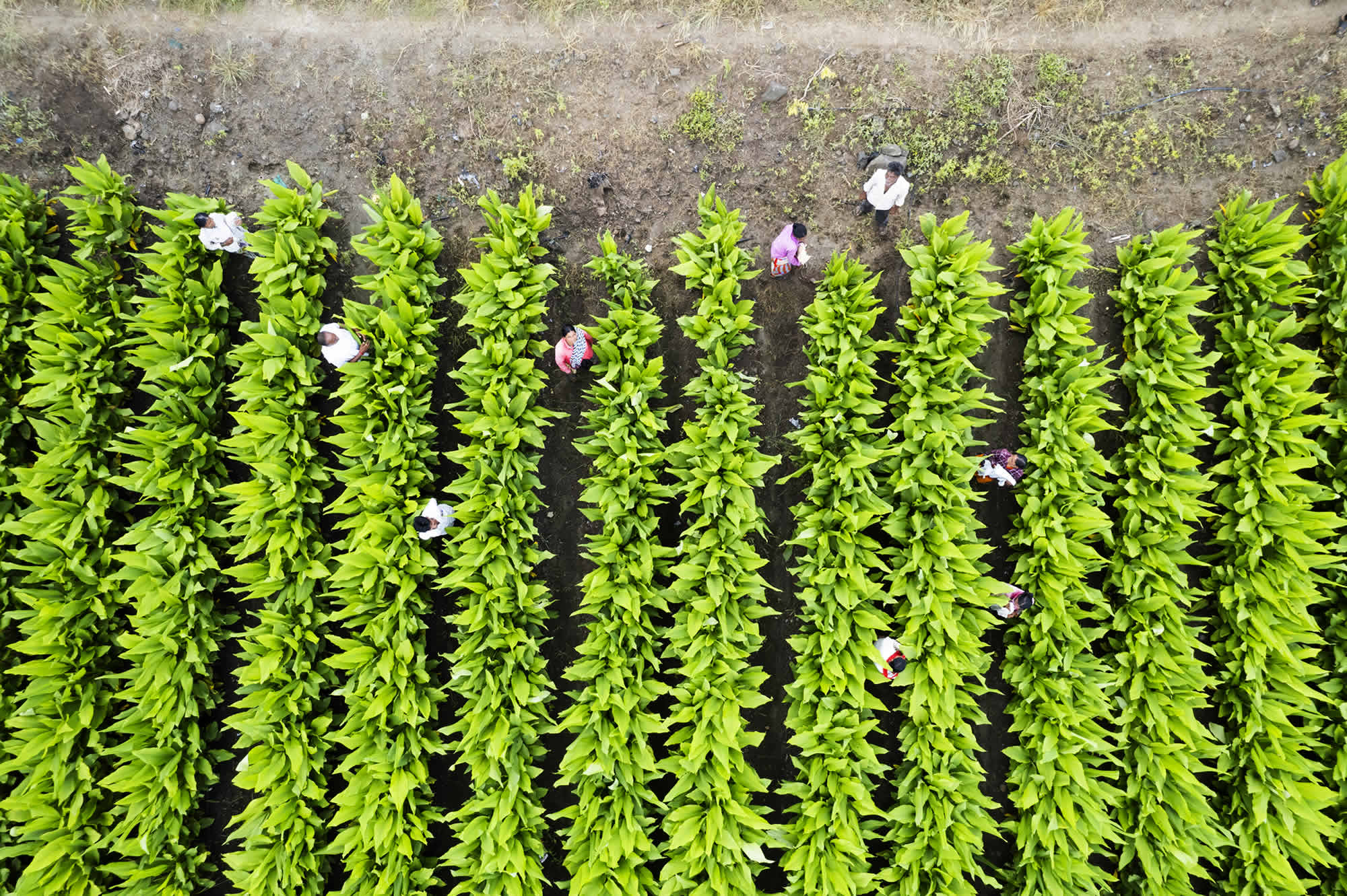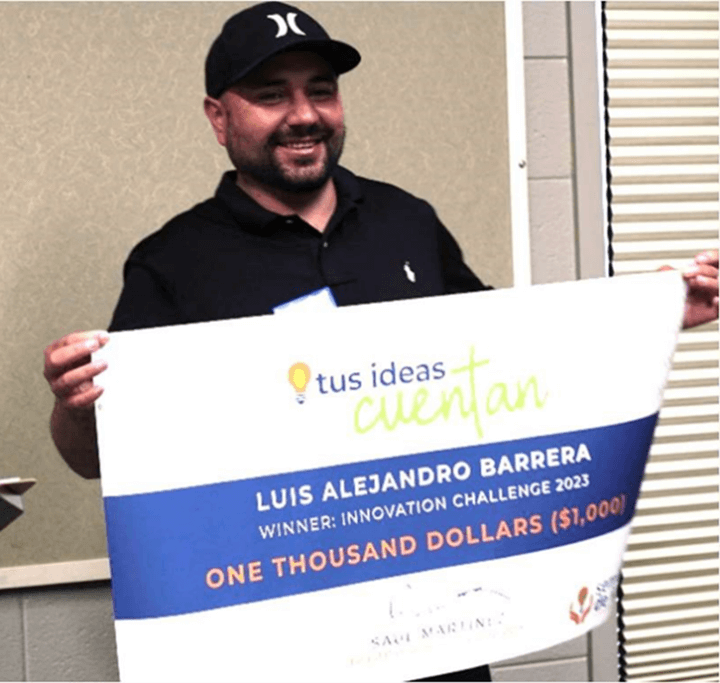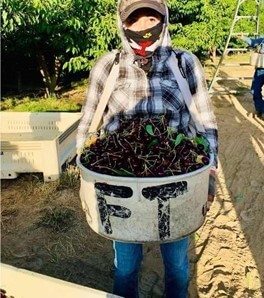Farmworker-Led Agricultural Innovation
A group of US based farm workers, former trade unionists, and others are working to change how fresh fruits and vegetables are grown across North America. Their organization, Semillero De Ideas, positions the very people doing the work, agricultural workers, as the leaders of much-needed innovation in the production of much of what we eat. Semillero de Ideas, or the Nursery of Ideas in English, maintains that no one knows better what improvements are needed to both enhance food production and to improve working conditions than farmworkers themselves.

Semillero de Ideas, a non-governmental organization based in Washington State in the northwestern corner of the United States, is now in its third year. The organization has been actively working with farm workers, labor providers, growers and others to highlight and document that farmworker are far more than physical labor; in fact, they have an abundance of ideas that when implemented can make agricultural production better for all.
This groundbreaking work faces significant headwinds. The employer community, known as growers, continues to see farm workers as largely unskilled, replaceable labor, or at best, workers whose job it is to quietly complete the tasks they are assigned. For farm workers, there currently is no market for their ideas, much less recognition or even a pipeline for their innovations to get to market. In other words, no one is asking them what they think.
An additional challenge is that technological companies, policy makers and even major agricultural trade organizations have decided that innovation is synonymous with automation; that the goal is to deploy technology that ultimately will replace farm workers. Private capital and government have invested billions of dollars to pursue this tech-centric future. Absent from this narrative is a substantive conversation about the increasingly large amounts of liquid capital needed to adopt planting practices to accommodate this technology, much less to pay for these robots and drones. There also is no conversation about data ownership; how these technological companies will aggregate and commercialize the resulting data, most likely further concentrating wealth and control of food production far from the hands actually doing the work.
Given that neither growers are asking for worker ideas, or that workers feel that their ideas matter, Semillero de Ideas has had to innovate ways to engage both stakeholder groups.
One approach was to sponsor a first-ever farmworker innovation challenge, inviting farmworkers from across eastern Washington State to share their ideas about how to best improve the picking of cherries. The WA cherry harvest is one of the most economically important activities for thousands of farmworkers. To the untrained eye, there’s not much to picking cherries. You attach a harness that drapes across your shoulders and attach a plastic bucket. You then take a 2.4-meter ladder, place it into the foliage of a cherry tree, climb up and start picking cherries. What’s there to innovate?
Semillero de Ideas offered a $1000 cash prize to the worker who came up with the best idea. By the end of our challenge, 38 farm workers submitted entries. Their ideas were comprehensive and systematic in nature, ranging from redesigning orchard planting, to changing how the trees are pruned, to redesigning existing equipment (ladders, harnesses, bins) to placing the entire orchard under glass to better protect workers and the fruit from environmental threats.
The winner, Luis Barrera, proposed a redesign of the harness used to hold the cherry bucket. The nylon straps growers currently provide workers both cut into workers’ shoulders and provide no back support. With the bucket weighing upwards of 13.6 kg when full, Luis explained that after perhaps 3-4 hours of work, he and his coworkers are no longer picking fruit but instead are managing pain. They continue working to complete their eight hours, but their productivity drops significantly. Luis’s idea was to repurpose and redesign hiking backpacks to create a harness with both padded shoulders and that provided back support.


This year, Semillero de Ideas launched its second challenge, this time with considerable industry support. The national brand Once Upon a Farm is sponsoring the innovation challenge, donating $15,000 in prize money. The Washington State Tree Fruit Association, which represents thousands of Washington apple, pear and cherry growers, is now actively spreading the word of our challenge to their membership. One of the largest providers of agricultural guestworkers in the US has opened their labor camps to Semillero de Ideas staff, inviting them to share news of the challenge and to conduct innovation workshops with interested workers.
At the same time, the organization is engaging policy makers and technologists around the issue of equity. While billions of US dollars are being invested to automate farm tasks, almost no funds are being invested to support farmworkers. While almost all US farmworkers are immigrants, many are decades-long residents of the US and an integral part of rural communities. In fact, the wages they earn are the lifeblood of small rural communities across the US. Automate the jobs, the wages disappear, farmworkers get displaced, rural communities depopulate and collapse.
To date, the State of Washington has invested funds in the organization and faculty, once dedicated solely to the development of automating technology, are now co-creating with farmworkers workplace interventions that enhance the dignity of work while supporting growers becoming more competitive in the marketplace.
In less than three short years, Semillero de Ideas has put a number of impressive results on the board. Yet challenges abound: largely due to a lack of exposure and understanding of technology, much of the innovation farmworkers currently are creating is analogous to optimizing a candle; making it burn brighter, longer, adding new scents. In doing so, they’re showing their insights and brilliance and improving their work life. However, if we’re going to get to an agricultural system that truly embraces worker voice and participation, we need to make a quantum leap to begin to innovate LED light bulbs; no degree of candle optimization will get us to create new and better lightbulbs. This will require not only the establishment of communities of farmworker innovators, but an intentionally designed ecosystem of experts prepared to co-create with farmworkers.
Time is not on our side. There is an ever-growing tsunami of agtech investment, start-ups and products targeting specialty crop production. We need to expand the community of farmworker innovators to other geographies. This year’s challenge has already attracted participants from Chile and interest from workers across Mexico and even El Salvador. By intentionally networking these communities, we can create synergy, momentum and mutual support across different commodities, States and even borders.
Semillero de Ideas firmly holds that a different future is possible, one that is rooted in racial, social and economic equity, a future that upholds and embraces worker voice, builds economic resilience in rural communities, and embraces the need for a just food system.
Share This Story!

European Workplace Innovation Network (EUWIN)
EUWIN was established by the European Commission in 2013 and is now entirely supported by contributions from an international network of partners co-ordinated by HIVA (University of Leuven). EUWIN also functions as a network partner to BEYOND4.0 and BRIDGES5.0 projects.
Contact: Workplace Innovation Europe CLG (contact@workplaceinnovation.eu).
